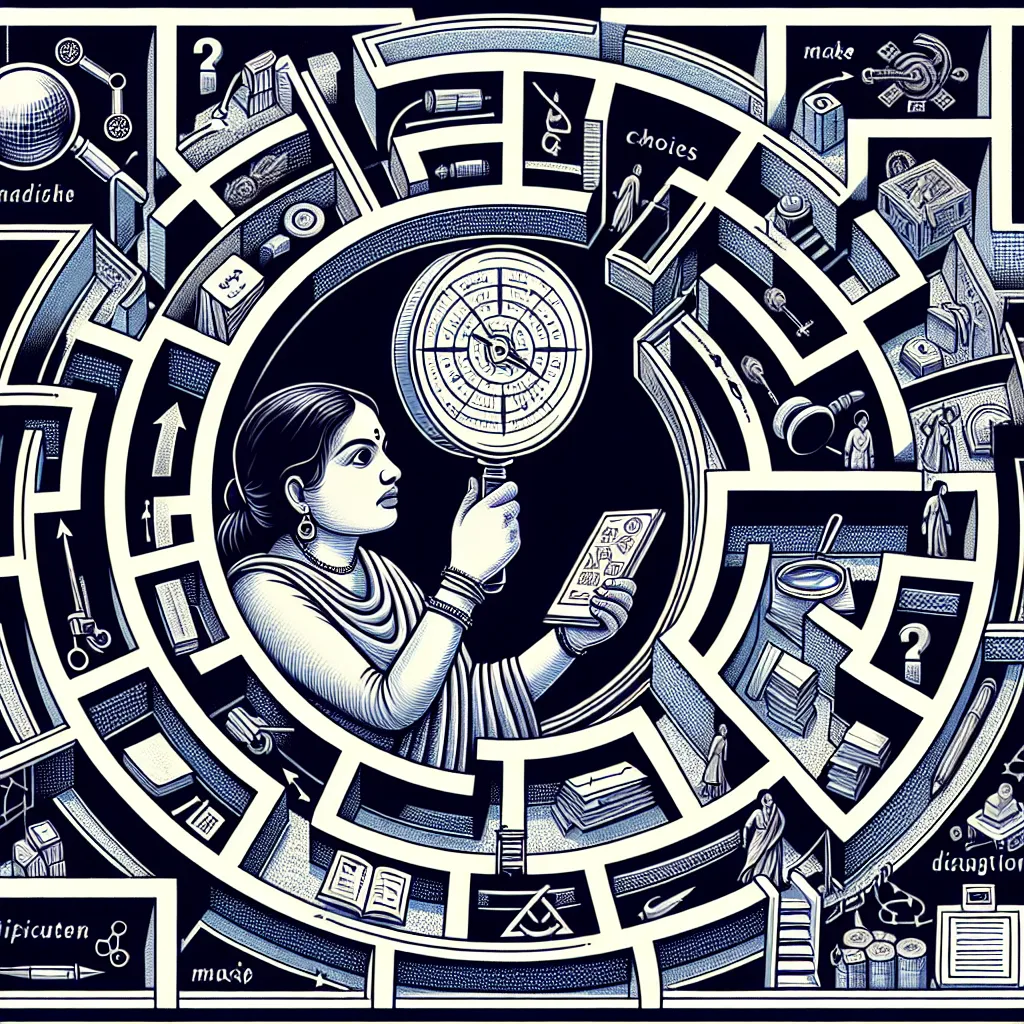The IELTS Reading section is a crucial component of the test, assessing candidates’ ability to comprehend complex texts and apply critical thinking skills. One recurring theme in IELTS Reading passages is “The importance of critical thinking in problem-solving.” This topic has appeared frequently in past exams and continues to be relevant in today’s rapidly evolving world. As we analyze current trends and the increasing emphasis on analytical skills in various fields, it’s highly likely that this theme will persist in future IELTS exams.
Nội dung bài viết
 Critical Thinking in Problem-Solving
Critical Thinking in Problem-Solving
IELTS Reading Practice Test: The Role of Critical Thinking in Modern Problem-Solving
Reading Passage
The following passage is a medium-difficulty text designed to test your critical reading and comprehension skills. Read it carefully and answer the questions that follow.
Critical thinking has become an indispensable skill in our rapidly evolving world, particularly when it comes to problem-solving. As we face increasingly complex challenges in various domains – from technology and science to social issues and environmental concerns – the ability to think critically has never been more crucial.
At its core, critical thinking involves the objective analysis and evaluation of information to form a judgment. This process encompasses several key components: identifying and analyzing problems, gathering and assessing relevant information, and generating well-reasoned solutions. In problem-solving scenarios, critical thinking acts as a powerful tool that enables individuals to navigate through ambiguity and make informed decisions.
One of the primary benefits of applying critical thinking to problem-solving is the enhanced ability to identify the root causes of issues. Rather than focusing solely on surface-level symptoms, critical thinkers delve deeper, examining underlying factors and interconnections. This approach often leads to more comprehensive and effective solutions that address the core of the problem rather than merely treating its manifestations.
Moreover, critical thinking fosters creativity in problem-solving. By encouraging individuals to question assumptions, consider multiple perspectives, and think outside conventional boundaries, it opens up new avenues for innovative solutions. This is particularly valuable in fields such as technology and business, where disruptive ideas can lead to groundbreaking advancements.
In the realm of decision-making, critical thinking serves as a safeguard against cognitive biases and emotional reasoning. It promotes a more objective and rational approach, helping individuals to evaluate evidence, recognize patterns, and anticipate potential consequences of different courses of action. This is especially important in high-stakes situations where the outcomes of decisions can have far-reaching impacts.
The importance of critical thinking in problem-solving extends beyond individual benefits to societal progress as a whole. In an era of information overload and rapid technological change, the ability to critically assess information and solve complex problems is vital for addressing global challenges. From climate change to economic inequality, the most pressing issues of our time require a populace equipped with strong critical thinking skills.
Educational institutions and workplaces are increasingly recognizing the value of critical thinking. Many schools are incorporating critical thinking into their curricula, teaching students how to analyze arguments, evaluate evidence, and construct logical reasoning. Similarly, employers are placing a premium on candidates who demonstrate strong critical thinking abilities, viewing these skills as essential for innovation and organizational success.
However, developing critical thinking skills is not without its challenges. It requires practice, patience, and a willingness to challenge one’s own beliefs and assumptions. Additionally, in a world that often values quick fixes and immediate gratification, the slower, more deliberative process of critical thinking can sometimes be overlooked or undervalued.
Despite these challenges, the importance of critical thinking in problem-solving cannot be overstated. As we continue to face complex, multifaceted problems in various aspects of life, the ability to think critically will remain a key differentiator between those who can effectively navigate these challenges and those who struggle to do so. By cultivating critical thinking skills, individuals and societies alike can better equip themselves to tackle the problems of today and tomorrow, paving the way for more innovative, sustainable, and thoughtful solutions.
Questions
1-5. Do the following statements agree with the information given in the Reading Passage?
Write:
TRUE if the statement agrees with the information
FALSE if the statement contradicts the information
NOT GIVEN if there is no information on this
- Critical thinking is less important now than it was in the past.
- Critical thinking helps in identifying the fundamental causes of problems.
- Emotional reasoning is preferred over critical thinking in decision-making.
- Educational institutions are reducing the emphasis on critical thinking in their curricula.
- Developing critical thinking skills is a straightforward process that comes naturally to most people.
6-10. Complete the sentences below.
Choose NO MORE THAN TWO WORDS from the passage for each answer.
- Critical thinking involves objectively analyzing and evaluating information to form a __.
- In problem-solving, critical thinking helps individuals navigate through __ and make informed decisions.
- Critical thinking encourages people to question __ and consider multiple perspectives.
- The ability to critically assess information is vital for addressing __ challenges.
- Employers view critical thinking skills as essential for __ and organizational success.
11-14. Choose the correct letter, A, B, C, or D.
-
According to the passage, critical thinking in problem-solving:
A) Is only useful in technological fields
B) Leads to quicker but less effective solutions
C) Encourages a focus on surface-level symptoms
D) Promotes more comprehensive and effective solutions -
The passage suggests that critical thinking:
A) Is a natural skill that doesn’t require practice
B) Is valued more in academic settings than in workplaces
C) Can help in overcoming cognitive biases
D) Is less important in high-stakes situations -
The author implies that developing critical thinking skills:
A) Is a challenging process that requires effort
B) Is unnecessary in the modern world
C) Should only be pursued by professionals
D) Is detrimental to creativity -
The main purpose of the passage is to:
A) Criticize current problem-solving methods
B) Compare critical thinking to other cognitive skills
C) Highlight the significance of critical thinking in problem-solving
D) Argue against the implementation of critical thinking in education
Answers and Explanations
-
FALSE – The passage states that critical thinking “has never been more crucial,” implying its importance has increased.
-
TRUE – The passage mentions that critical thinkers “delve deeper, examining underlying factors and interconnections.”
-
FALSE – The passage states that critical thinking serves as a safeguard against emotional reasoning.
-
FALSE – The passage states that “Many schools are incorporating critical thinking into their curricula.”
-
FALSE – The passage mentions that developing critical thinking skills “requires practice, patience, and a willingness to challenge one’s own beliefs and assumptions.”
-
judgment
-
ambiguity
-
assumptions
-
global
-
innovation
-
D – The passage states that critical thinking “often leads to more comprehensive and effective solutions.”
-
C – The passage mentions that critical thinking “serves as a safeguard against cognitive biases.”
-
A – The passage states that developing critical thinking skills “requires practice, patience, and a willingness to challenge one’s own beliefs and assumptions.”
-
C – The entire passage focuses on explaining and emphasizing the importance of critical thinking in problem-solving.
Common Mistakes to Avoid
- Overlooking key words: Pay attention to qualifiers like “always,” “never,” or “sometimes” in both the passage and questions.
- Relying on prior knowledge: Base your answers solely on the information provided in the passage.
- Misinterpreting “NOT GIVEN”: Remember, this means the information is neither confirmed nor contradicted in the passage.
- Rushing through the passage: Take time to understand the main ideas and supporting details.
- Ignoring context: Consider how each sentence relates to the overall message of the paragraph and passage.
Key Vocabulary
- Indispensable (adj): /ˌɪndɪˈspensəbl/ – absolutely necessary
- Ambiguity (n): /ˌæmbɪˈɡjuːəti/ – uncertainty or inexactness of meaning
- Cognitive biases (n): /ˈkɒɡnətɪv ˈbaɪəsɪz/ – systematic errors in thinking that affect decisions and judgments
- Disruptive (adj): /dɪsˈrʌptɪv/ – causing or tending to cause disruption
- Deliberative (adj): /dɪˈlɪbərətɪv/ – characterized by careful consideration or deliberation
Grammar Focus
Pay attention to the use of conditional sentences in the passage, for example:
“By encouraging individuals to question assumptions, consider multiple perspectives, and think outside conventional boundaries, it opens up new avenues for innovative solutions.”
This sentence uses a present simple conditional to describe a general truth about the effects of critical thinking.
Tips for Success in IELTS Reading
- Practice active reading: Engage with the text by asking questions and making mental notes as you read.
- Improve your time management: Allocate your time wisely between reading the passage and answering questions.
- Expand your vocabulary: Regularly learn new words and their contextual usage.
- Develop skimming and scanning techniques: Quickly identify main ideas and locate specific information.
- Analyze question types: Familiarize yourself with different question formats and develop strategies for each.
Remember, mastering IELTS Reading requires consistent practice and a strategic approach. By honing your critical thinking skills and applying these tips, you’ll be well-prepared to tackle any passage that comes your way.
For more insights on enhancing your problem-solving abilities, check out our article on the best ways to enhance problem-solving skills. Additionally, to understand how critical thinking relates to other essential skills, read about the importance of teaching digital literacy.


